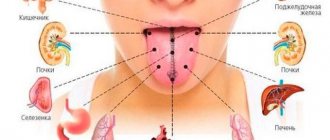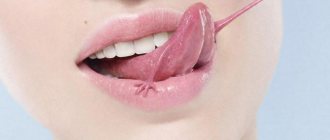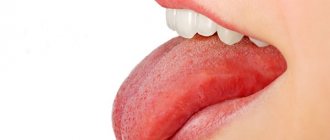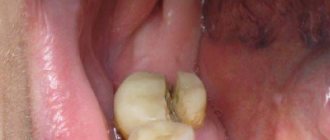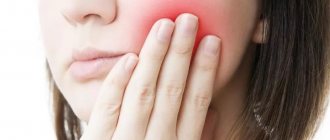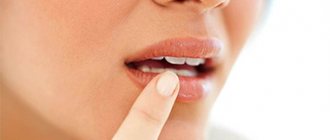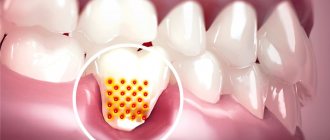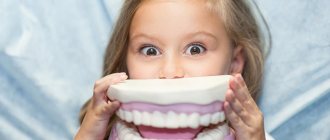Some people keep a glass of water on their bedside table because they wake up at night with a feeling of dry mouth and often accompanying thirst. Such phenomena may be normal and appear, for example, due to eating salty foods in the evening. Sometimes dry mouth occurs due to more serious causes, such as diabetes, Sjögren's disease, or taking certain medications. In some cases, other types of disorders can also lead to the appearance of this symptom, for example, breathing disorders, including nasal breathing, during sleep.
Are you worried about night or morning dry mouth? It may be a sign of sleep disturbances. Contact our Center and we will help you effectively! Sign up by phone.
Symptoms of dry mouth
Common symptoms include dry tongue and throat, cracked lips, and a sticky, sticky feeling in the mouth. Some people with dry mouth have difficulty recognizing the taste of food, chewing and swallowing food, have difficulty speaking, have sores, and have a burning sensation in the mouth. If you have several symptoms of dry mouth, consult your dentist or physician - such symptoms may be a sign of diseases that require medical attention.
Causes of dry throat causing cough during colds
It is no coincidence that the respiratory organs are called the entrance gates for infection: they take the blow.
Viruses entering the mucous membrane of the throat cause irritation and swelling. As a result of damage to the mucous membrane, it can no longer fully perform its functions, including producing a moisturizing secretion. The consequence of this is dryness and sore throat. Since the nerve endings of the mucous membrane are irritated, the cough reflex is activated - an obsessive desire to cough arises. It is worth noting that dry and damaged mucous membranes become a favorable environment for further proliferation of viruses. At the same time, they release toxins that poison the body and cause a general feeling of weakness, aches throughout the body, and headaches. The immune system reacts to the invasion of viruses by increasing body temperature, which causes a person to sweat and lose fluid, which only worsens health.
What causes dry mouth?
It is important to know not only the symptoms, but also the causes of dry mouth at night. It may occur due to snoring or sleeping with your mouth open, smoking, drinking alcohol, or experiencing stress and emotional overload. In addition, dry mouth at night may be a sign of Sjögren's syndrome or a side effect of medications such as sinusitis, anxiety and depression.
Causes
If a person feels dry during the night and immediately after waking up that his tongue is dry and there is literally not a drop of saliva in his mouth, it is important to find out as quickly as possible why this is happening. The situation is complicated by the fact that there are many factors that can cause such symptoms, ranging from banal summer stuffiness in the bedroom to serious health problems.
Triggering everyday situations
Why does my tongue dry out at night? Fortunately, the reason for this does not always lie in illness - various internal and external factors can affect the production of saliva, and by eliminating them, you can quickly get rid of the problem.
One of the most common causes of dry mouth at night is dehydration—if a person doesn't drink enough, their saliva becomes viscous and produces less volume.
The condition of the oral cavity can also be affected by:
- The temperature or humidity in the bedroom is too high. It’s easier to correct the situation during the day - just drink a glass of water, and the condition of the mucous membrane will return to normal. But in a dream, a person is deprived of this opportunity, so if the thermometer in the room shows more than 22-23 ⁰C, and the humidity level has dropped below 50%, dryness can make itself felt at any moment.
- Contaminated air. People living in industrial areas with unfavorable environmental conditions are more likely to experience dry mouth in the morning and during the night.
- Nasal congestion. During a runny nose, a person often has to spend the whole night with his mouth open in order to simply breathe. This means that the flow of air passing through the oral cavity for several hours in a row will greatly dry out the mucous membrane.
- Snore. People who snore in their sleep most often have to breathe through their mouth, which affects not only the quality of night's rest, but also the condition of the mucous membranes and tongue.
- Unhealthy habits. Alcohol, tobacco, drugs and even too much coffee cause dehydration and poison the body with toxins.
In addition, in older people, the causes and relief of dry mouth at night are directly related to the medications they are forced to take daily. For example, many drugs for lowering blood pressure have a diuretic effect, which means they sharply reduce the amount of fluid in the body, causing dry mucous membranes.
Internal pathologies
Among other things, go to the dentist.
Severe dry mouth during the night can be associated with various diseases that cause intoxication, loss of fluid and important microelements, and malfunction of the salivary glands. This is about:
- disturbance of water and electrolyte balance as a result of severe diarrhea or vomiting;
- acute respiratory diseases;
- alcohol or drug poisoning;
- hormonal imbalance;
- diabetes mellitus;
- stroke;
- Parkinson's disease;
- head injuries;
- arthrosis, arthritis;
- gastritis, pancreatitis, ulcers, etc.
In addition, the answer to the question of why the mouth and tongue dry out at night often lies in the field of dentistry: diseases of the teeth and gums also affect the condition of the mucous membrane, especially if treatment is delayed for quite a long time.
Associated symptoms
Dryness and discomfort in the oral cavity are often accompanied by additional symptoms, from which the doctor can also draw a conclusion about the causes of the problem. For example:
- Dry mucous membranes and constant bitterness in the mouth are signs of problems with the liver, bile ducts or pancreas.
- A deficiency of saliva in combination with headache and dizziness may indicate a tendency to low blood pressure.
- Nausea and dry mouth at night can be signs of overeating, and in combination with diarrhea - symptoms of an intestinal infection.
- A dry tongue, constant thirst and frequent urination are some of the main external manifestations of diabetes.
However, the most dangerous is considered to be a combination of acute lack of saliva and general weakness - these signs may indicate that the patient has blood diseases or malignant neoplasms.
The Best Strategies for Combating Dry Mouth
The first thing you should do is talk to your dentist, who can determine the causes of dry mouth and, if it is a symptom of a medical condition, offer you treatment options. While waiting for your visit to the clinic, try to relieve your condition on your own:
- Keep a glass or bottle of water on your bedside table to quench your thirst at night
- Dentists also recommend using sugar-free chewing gum or sugar-free candy throughout the day.
- Use a humidifier in your bedroom at night
- Reduce your caffeine and soda intake
- Quit tobacco and alcohol
- Drink more fluids throughout the day to avoid dehydration
In addition, careful care of your teeth and gums provides significant assistance in the fight against dry mouth. Be sure to use an alcohol-free mouthwash, brush your teeth twice a day, and floss, which helps remove food particles stuck between your teeth in areas that are hard to reach with a toothbrush.
Don't let dry mouth interfere with your night's rest. Take the necessary steps and wake up in the morning in a good mood, fully prepared for the new day.
General recommendations
Those who often suffer from dry mouth in the morning should adhere to the following rules:
- Watch your diet. The healthier the food, the healthier the body as a whole. But lovers of sweets, smoked foods, pickles and anything that contains food additives and dyes should not be surprised if the day begins with discomfort and unpleasant sensations.
- Ensure free breathing. Nasal congestion and, as a result, mouth breathing often cause dry mucous membranes. Therefore, it is important to treat a runny nose in a timely manner, and also to rinse your nose more often with saline solution or sea water-based drops purchased at the pharmacy.
- Lead a healthy lifestyle. We are talking, of course, about giving up bad habits - smoking and drinking alcohol, especially at night. They negatively affect not only the condition of the oral mucosa, but the functioning of the body as a whole.
- Maintain a teeth brushing routine. You need to pay attention to oral hygiene 2 times a day - in the morning and before bed, using toothpaste with fluoride and a soft brush.
And, most importantly, you should not put up with constant dry mouth during the night and after sleep - this problem can be completely solved if you seek help in time and follow all the doctor’s recommendations.
| Share: |
Similar materials
Which doctor should I contact?
Since xerostomia is not a disease, but a symptom of one or more disorders, the patient can go to a general practitioner (family doctor or therapist) or dentist with a complaint.
You should not postpone a visit to the doctor if other symptoms appear at the same time:
- complicated caries (tooth pain is severe);
- rashes, redness on the face and body;
- dehydrated, tight skin;
- irritated, dry eyes;
- pain in muscles, joints.
To clarify the cause, the doctor may additionally refer the patient to a gastroenterologist, gynecologist, rheumatologist or endocrinologist.
What is xerostomia
Xerostomia is dryness, itching, and discomfort in the oral cavity, caused by a decrease or cessation of salivation. Insufficient functioning of the salivary glands is often a sign of various diseases or the body’s reaction to stress or a negative external environment.
Every fifth person complains of xerostomia. The symptom occurs more often in women (about 30%) than in men. The proportion of patients among the elderly is half.
How to get rid of dryness
You can temporarily get rid of the unpleasant sensation by simply drinking water. To eliminate discomfort for a long time, you need to adjust your habits and cure the underlying disease. A person has to learn to live with some pathologies: they are incurable, but the symptoms can be reduced.
It is important to establish a drinking regime. A person needs to drink approximately 1.5-2 liters of water per day, depending on his weight and pace of life. Calculating the required volume is simple: for each kg there are 30 ml. If the weight is 67 kg, then calculate: 30 × 67 = 2010 ml. This is 2 liters. The volume of fluid should be increased during heat, intense physical activity, and stress.
It is better to drink clean water: you are less likely to get swelling. Caffeine-containing drinks (tea, coffee) are quickly eliminated from the body. You can replace them with juices, but not concentrated ones, compotes, fruit drinks.
The drink should not have too much sugar. He makes me very thirsty. It is advisable to reduce the amount of sweet drinks as much as possible.
Herbal infusions, tinctures, and teas quench thirst well. But before use, you need to make sure that there is no allergy to the components of the collection, the herbs are not diuretic. If you have a history of kidney disease or cardiovascular disease, you should not use herbs that negatively affect their function.
Thus, parsley helps with edema, but is contraindicated in case of urolithiasis. Dill infusions should not be consumed by hypotensive patients.
The following products will help reduce discomfort or completely get rid of xerostomia:
- Chewing gum. It temporarily relieves dry mucous membranes, but does not cure. Chewing gum with xylitol reduced dry mouth for a long time in a third of patients.
- Fruits and vegetables. They contain 70-90% liquid, so eating them fresh, boiled or stewed helps cope with thirst. Acidic fruits (apples, lemons, grapefruits, kiwis) irritate the receptors and provoke increased salivation. Fruits with astringent properties (persimmon) have the opposite effect.
- Moisturizing sprays for the oral cavity. Locally acting drugs relieve discomfort and pain, and eliminate thirst for a time. These are Oral 7, Gum Hydral, Dentaid Xeros, Xerostom, etc.
The following tips will also help eliminate dry mouth:
- Cure nasal congestion. Due to mouth breathing, the mucous membrane dries out faster. To get rid of the problem, you can use vasoconstrictor drops and saline rinsing solution.
- Adjust the humidity and air temperature in the house. According to sanitary standards, humidity should be at 40-60% at a temperature of 18-21º C.
- Set up nutrition. If most of your diet is salty, fatty, smoked or sweet food, then it will be difficult to get rid of dryness. You can eat such products in small quantities, preferably before lunch. Preference should be given to easily digestible foods (vegetables, fruits, grains).
- Reduce your consumption of dry foods. You can't eat dry sandwiches. Reduce your consumption of cookies, chips, and crackers. It is noticed that after such a meal you feel thirsty.
If you stick to your diet, you can significantly reduce the feeling of dryness. There should not be long breaks between meals. It is better to plan your day so that you can eat 3-5 times a day.
You should not fill your calorie needs in 1-2 times. Smaller portions of food are easier and faster to digest.
When should you be concerned about bad breath?
If the smell appears not only in the morning, but also haunts a person constantly, around the clock, this most often indicates the presence of health problems. These could be dental diseases.
“An unpleasant odor throughout the day can occur with gingivitis (inflammation of the gums), with a large amount of plaque and tartar, or with inadequate hygiene. When there are decayed teeth and tooth roots in the mouth. There are caries in the mouth, failed crowns and fillings,” says Veronika Ryzhova.
Article on the topic
Love at first sight. How we select a partner based on smell Bad breath can occur in people who wear various dentures or orthopedic structures: crowns, braces, bridges, mouth guards, etc. Such patients should more carefully monitor oral hygiene, since between dental structures there may be food debris and bacteria accumulate.
According to the dentist, non-dental problems can also be common causes of bad breath: diseases of the gastrointestinal tract, as well as tonsillitis, when caseous plugs form on the palatine tonsils - bacteria also multiply in them.
In addition, an unpleasant odor can be caused by diseases of the liver, biliary tract, metabolic disorders in the body, and pathologies of the salivary glands. In some cases, this problem occurs due to inflammation of the upper respiratory tract.

